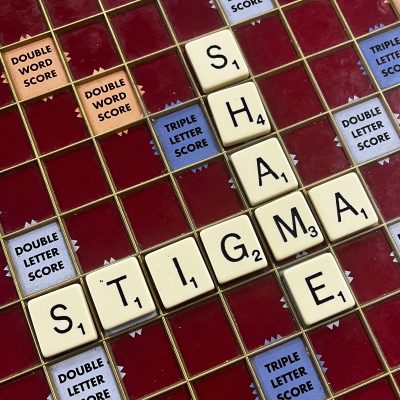 A lot of stigma and misconception is associated with alcoholism, also known as alcohol use disorder.
A lot of stigma and misconception is associated with alcoholism, also known as alcohol use disorder.
People in the clutches of alcoholism are often incorrectly viewed as incompetent, lazy, or immoral. Because so many people underestimate the grasp alcoholism can have over one’s life, they often assume that alcoholism is simply a result of poor choices. They believe that if the individual were to simply stop drinking, ‘get their life together’, or go out and get a job, the issue would then resolve itself.
The fact is alcoholism or alcohol use disorder is a very real disease. It can affect anyone. From the outside, most people suffering from alcohol use disorder can appear to function fine during their day-to-day life. Behind closed doors, however, their drinking slowly begins to deconstruct their lives – family life, social life, work life, etc.
For close friends and family, it’s hard to watch loved ones dealing with alcohol use disorder harm themselves by drinking. Those friends and family members just want to make the disease go away, for their sake and for their loved one. We do everything in our power – pouring out bottles, covering for them when they’re intoxicated, even begging and pleading – to try to get the drinking to stop.
For their part, those afflicted with alcoholism often suffer from incredible guilt and shame caused by their illness. Eventually, guilt and blame can overtake everyone involved. The constant anxiety and stress that arises can even make those trying to help or care for an alcoholic to become sick.
The most important thing to remember is that nobody is ever responsible for another person’s alcohol use. As backward as it sounds, the best way to provide support for a loved one with alcoholism is to get help for yourself. There are many great articles online that discuss the complexities of alcohol use disorder in depth. Knowledge is power. The more you educate yourself on the complexities of the disease of alcoholism, the better prepared you’ll be to protect yourself and your struggling loved ones. Constantly picking up the pieces for the individual will only show them that you’ll suffer the consequences for their actions so they don’t have to…otherwise known as “enabling.”
Here is a list of ‘Don’ts’ from the pamphlet “A Guide for the Family of the Alcoholic”, written by Al-Anon Family Groups:
- Don’t lecture, moralize, scold, blame, threaten, argue, pour out liquor, or cover up the consequences of drinking. You may feel better but the situation will be worse.
- Don’t lose your temper and thereby destroy yourself and any possibility of help.
- Don’t allow your anxiety to compel you to do for alcoholics what they must do for themselves.
- Don’t accept a promise, for this is just a method of postponing pain. In the same way, don’t keep switching agreements. If the agreement is made, stick to it.
- Don’t believe everything the alcoholic tells you. It may not be the truth.
Below is a list of ‘Don’ts’ from the pamphlet “A guide for the Family of the Alcoholic”, written by Al-Anon Family Groups:
- Don’t lecture, moralize, scold, blame, threaten, argue, pour out liquor, or cover up the consequences of drinking. You may feel better but the situation will be worse.
- Don’t lose your temper and thereby destroy yourself and any possibility of help.
- Don’t allow your anxiety to compel you to do for alcoholics what they must do for themselves.
- Don’t accept a promise, for this is just a method of postponing pain. In the same way, don’t keep switching agreements. If the agreement is made, stick to it.
- Don’t believe everything the alcoholic tells you. It may not be the truth.
- Don’t let the alcoholic exploit you or take advantage of you. In doing so, you become an accomplice in the evasion of responsibility.
- Don’t put off facing the reality that alcoholism is a progressive disease that gets increasingly worse as drinking continues.
- Don’t try to follow this list as a rule book. It is simply a guide to be used within intelligence and evaluation.
Attending meetings for those who have been affected by a loved one’s drinking may provide you with an incredible community of support. The Turning Point Center of Chittenden County offers a Families Coping with Addiction support meeting every Wednesday, beginning at 5:30pm and ending at 6:30pm. We also offer Recovery Coaching for family members of people suffering from addiction and alcohol use disorder, free for anyone needing this support. Additionally, Al-Anon Family groups – an organization created for those who have been affected by another person’s alcoholism – offer support meetings throughout the country. Visit the Al-Anon website and find a meeting location close to you.
Below are links to articles to further educate oneself on the disease of Alcoholism.
- “Alcohol Use Disorder” – Clevelandclinic.com
- “Alcohol Use Disorder” – Yalemedicine.org
- “Understanding Alcohol Addiction” – Aspinridgerecovercenters.com
- “How can Al-Anon help me?” – al-anon.org

 A lot of stigma and misconception is associated with alcoholism, also known as alcohol use disorder.
A lot of stigma and misconception is associated with alcoholism, also known as alcohol use disorder.